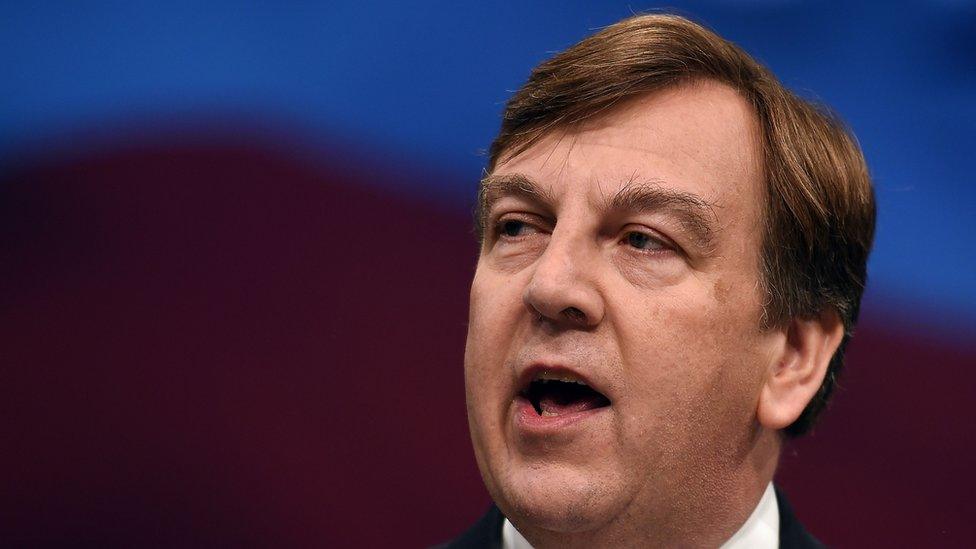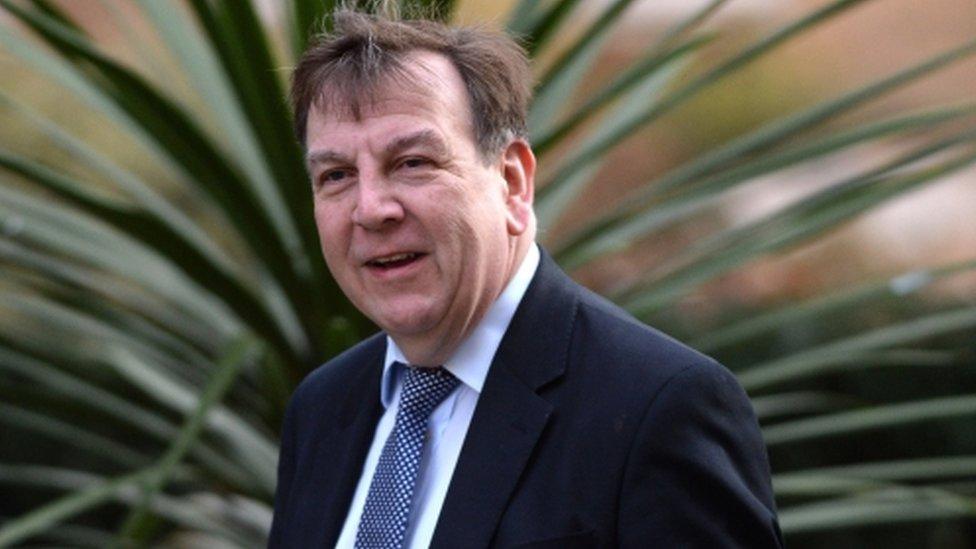Should John Whittingdale have revealed his past?
- Published

John Whittingdale did not tell Number 10 about his "embarrassing" relationship with a prostitute
Even the humblest officials in Culture Secretary John Whittingdale's department must sign a vetting form requiring them to reveal any activities that might lead people to accuse them of bias or prejudice in their official duties.
More senior government staff are obliged to go further, to give details of any conduct they have ever been involved in that might make them susceptible to pressure or improper influence.
They must answer yes or no to question 18d.

But the secretary of state is not required to sign anything.
There is no formal vetting of government ministers, although the security services have been known to conduct some background checks.
Appointments are entirely at the discretion of the prime minister.
The issue arises because Mr Whittingdale did not tell Number 10 about his "embarrassing" relationship with a prostitute, a story that was widely known by the tabloids.
Should he have alerted his department's top civil servant and Downing Street when he was appointed to a post with responsibility for regulating the newspapers?
The Ministerial Code says ministers must ensure that there isn't even the appearance of a conflict of interest between their public duties and private interests.
They are told not to do things that "might reasonably appear to compromise their judgement or place them under an improper obligation".
However, while ministers are not formally obliged to disclose any skeletons in their closet, civil servants are warned that not to reveal past indiscretions could result in dismissal.
Advice on how to fill out the official security questionnaire says this:
"Lying or concealing information on a security questionnaire or at interview is viewed very seriously because it is taken as evidence of unreliability and/or dishonesty.
"Indeed, your security clearance could be refused because you lied, even though what you were seeking to conceal would not in itself have caused a problem.
"Furthermore, your security clearance could be removed at a later date if the lie subsequently came to light."
'Extensive details'
John Whittingdale says he ended his relationship in February 2014 when he discovered she was a sex worker. He says he found out after learning tabloid newspapers had been approached about the story.
A little over a year later he was appointed secretary of state for culture, media and sport, with responsibility for regulating newspapers.
New ministers routinely sit down with their department's most senior civil servant, the permanent secretary, to talk through anything that might cause a problem.
We don't know whether Mr Whittingdale told Sue Owen at the Department for Culture, Media and Sport CMS about the embarrassing personal story that had been hawked around Fleet Street for over a year.
Given that Downing Street says it only learned about it 10 days ago, if he did say anything, it would seem it was not passed on.
Having ended the relationship 15 months earlier, Mr Whittingdale may argue there was no longer anything that could look like a conflict of interest, nothing that might appear to place him under an improper obligation.
It is understood that four newspaper groups have got extensive details of the relationship, including unpublished tapes and photographs.
- Published13 April 2016
